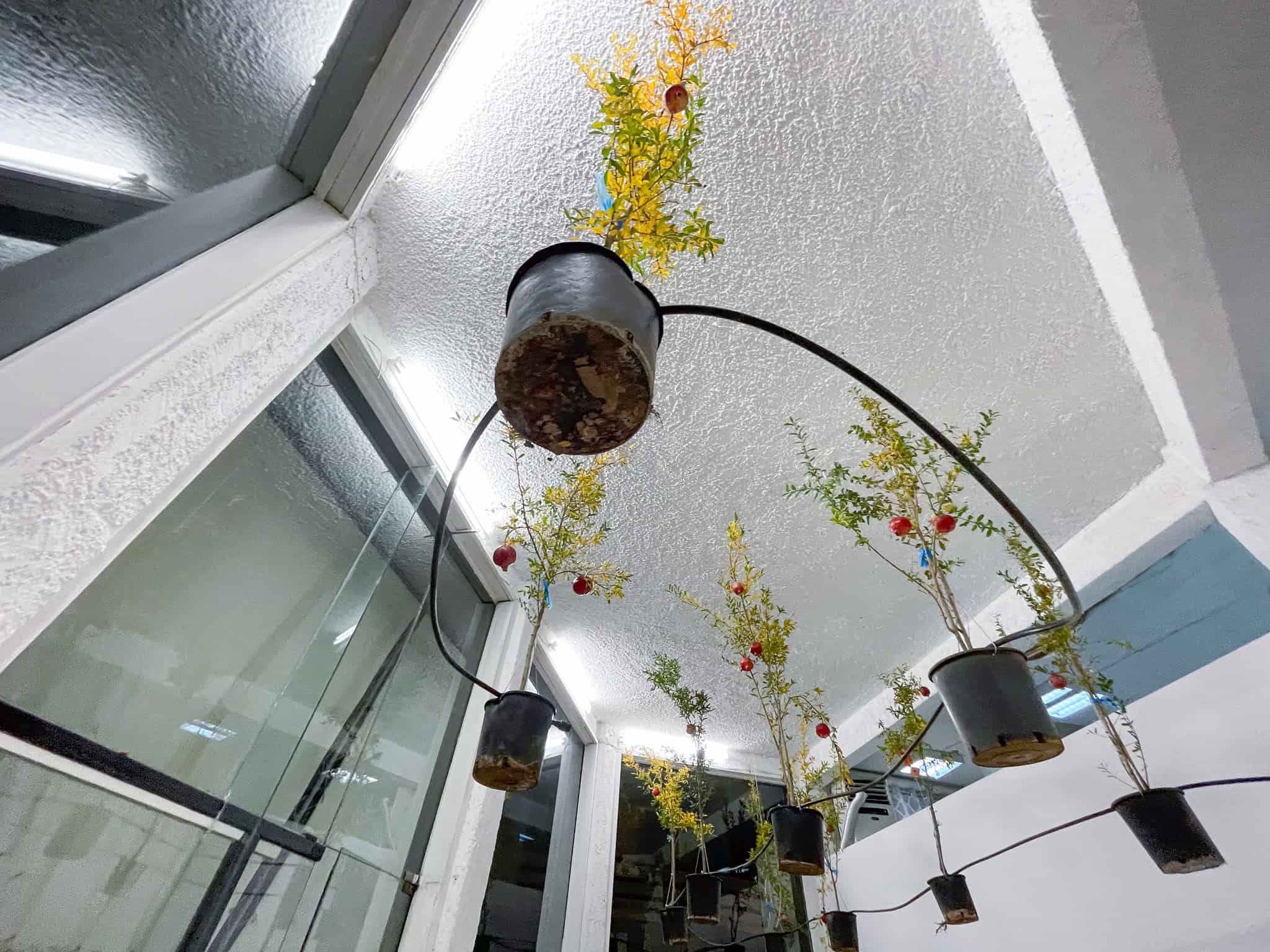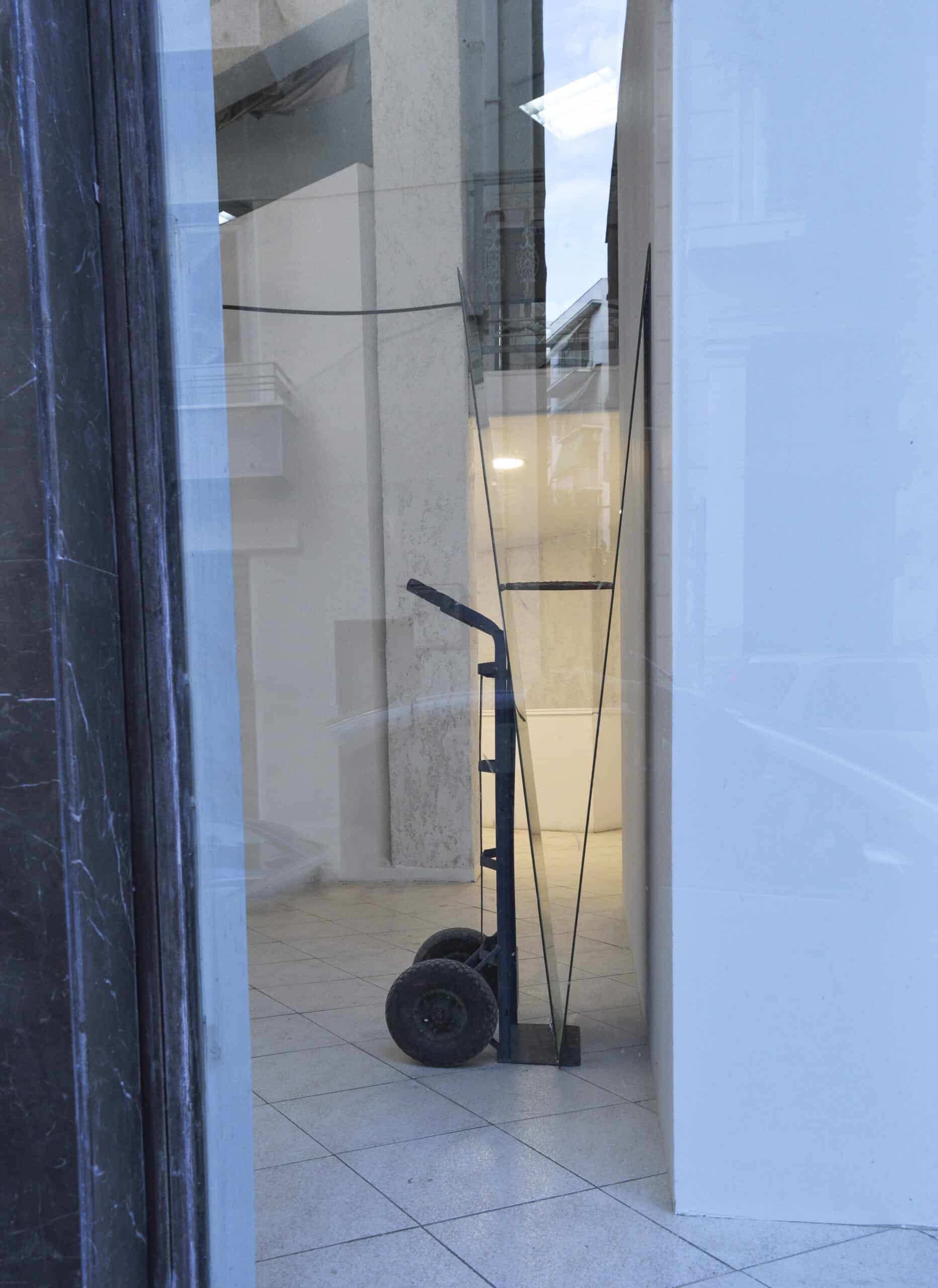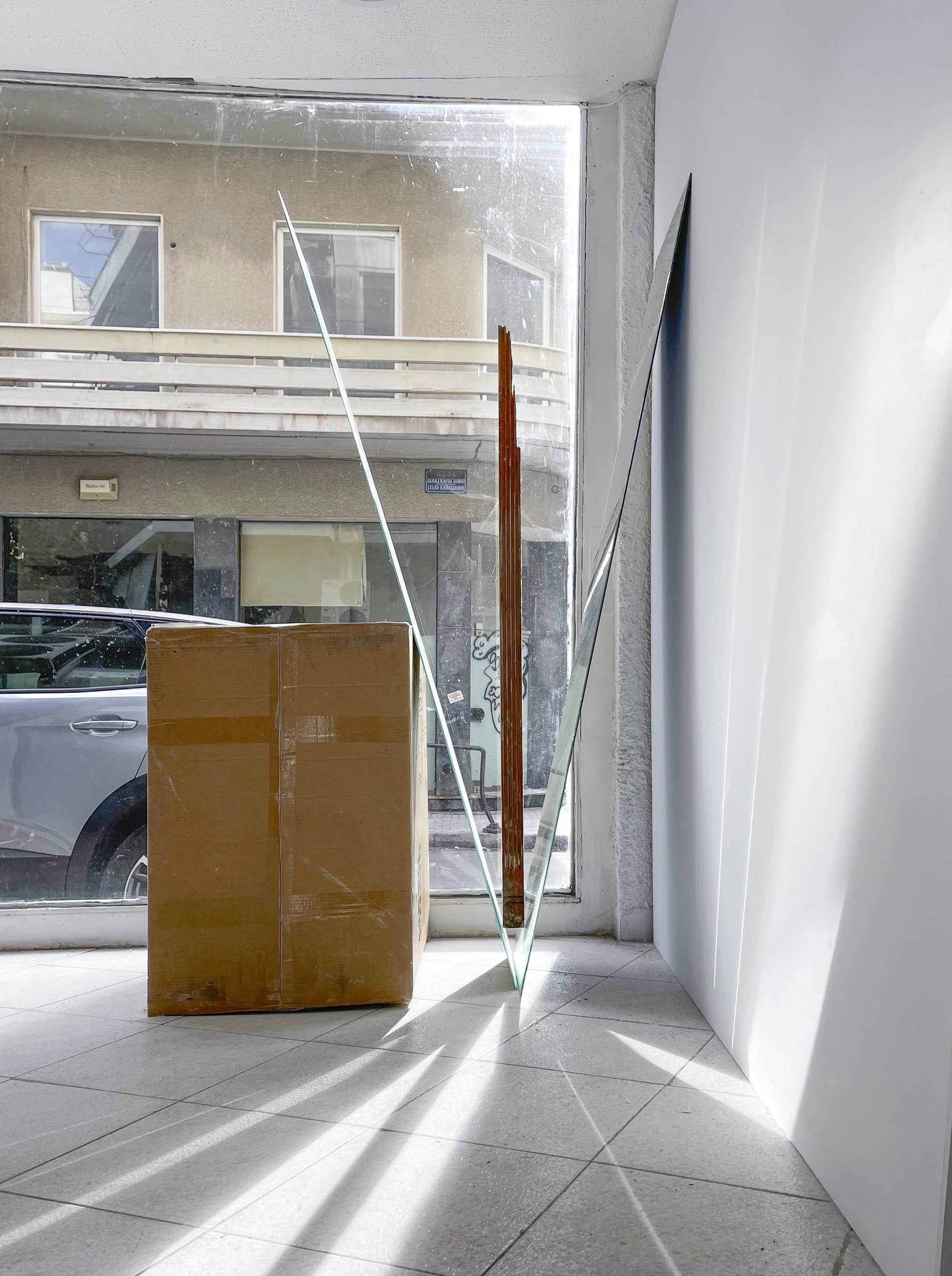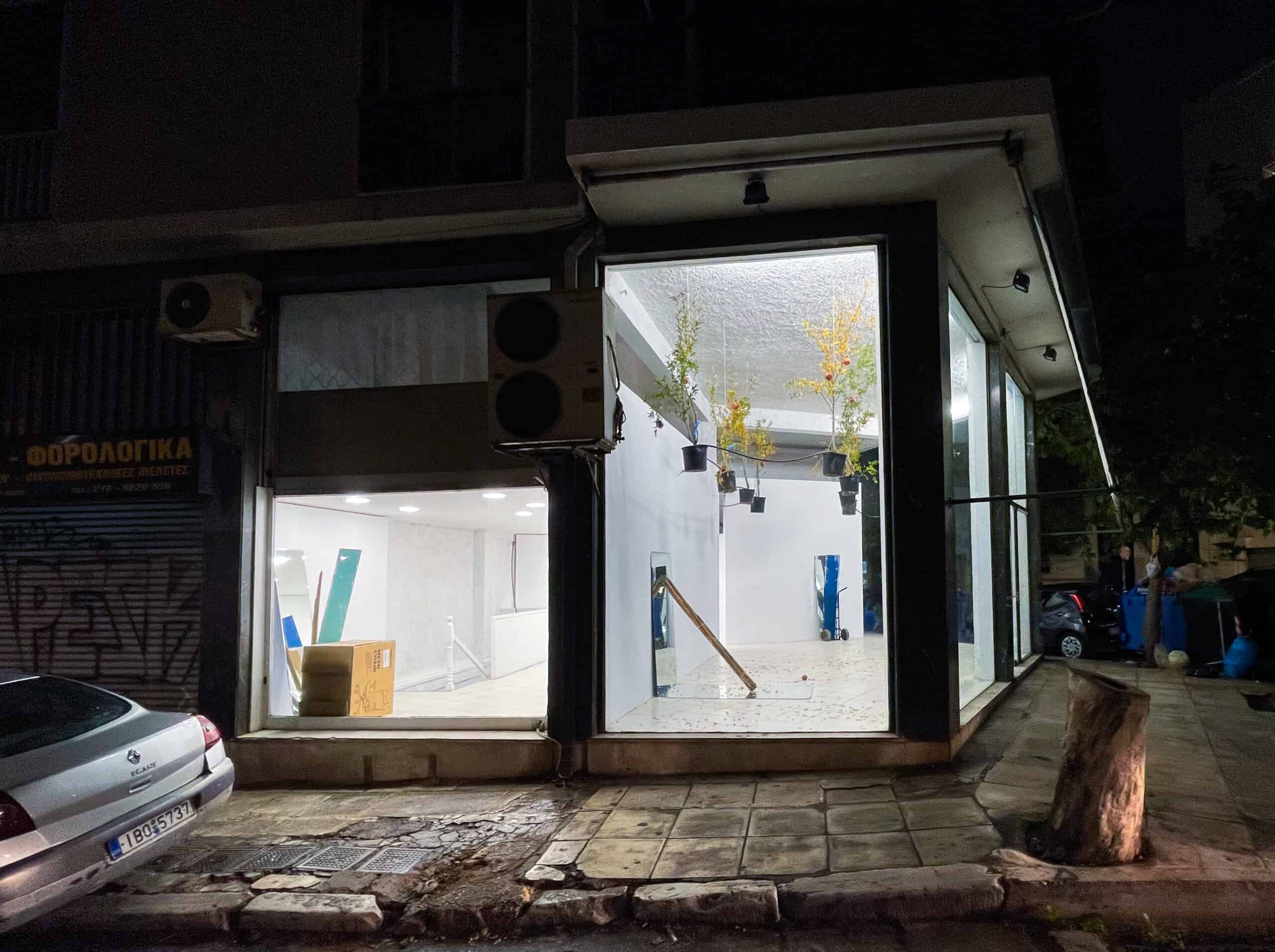Perivoli, Equivocation
Cynefin, Athens. 2024
Site specific installation, ceiling-suspended pomegranate orchard, out of reach. Live trees, drip-irrigated.
(Side view) Cornered I, 2024: mirrors, trolley, chair fragment. 89 x 179 x 179 cm
(Detail) Cornered I, 2024: mirrors, trolley, chair fragment. 89 x 179 x 179 cm
Cornered II, 2024: mirrors, bed frame fragments, string. 58 x 54 x 178 cm
Cornered IV, 2024: mirrors, cardboard box, fragment of bed rest. 98 x 96 x 178
(Detail) Cornered IV, 2024: mirrors, cardboard box, fragment of bed rest. 98 x 96 x 178
Crone, 2024: electric heater, chandelier, plastic bag. Dimensions variable
Overview
In Perivoli – Equivocation, Rafael Pérez Evans stages a final farewell to the gallery’s former life as a clothing shop. The mirrors that once lined the shop’s walls and basement are now propped and scattered throughout the space, alongside a box and an old wardrobe, ready to be wheeled out, creating a makeshift, oversized ‘changing room’ for all to peek into. These mirrors return to work, reflecting tired, ‘outdated’ fragments of ornate found objects—bed feet, a chair fragment, the gold rim of a side table—salvaged from nearby flats undergoing rapid renovation. Each item, a remnant of older generations’ homes, is caught and cornered in the mirrors, taking one last spin and forming reflections of simple, rudimentary shapes – a square, a circle, a star, and a cube – capturing a fleeting glimpse of its modest self before being discarded in this gentrifying neighborhood.
“Perivoli” is the Greek word for “orchard” or “enclosure.” Above, ten pomegranate trees have been uprooted and suspended from the ceiling, transforming the space into an orchard with an irrigation system. As autumn settles in, their leaves turn yellow and fall, gradually leaving the branches bare as they go dormant for winter, while the ripe fruits hang high, unpicked and out of reach. In the basement, a chandelier–half shrouded with a black bag found on a nearby terrace–sits in the dark, lit by the glow of a cheap electric heater.
Through these discarded, ornate furnishings and out-of-reach fruits, Pérez Evans unearths fragments of Southern Mediterranean cultures at breaking point, battered and equivocated by relentless pressure to conform to shifting material, epistemic, and economic currents.
Evans reimagines institutions and art spaces as unstable, temporary parking lots, where charged histories, materials, and sentiments in flux are momentarily parked and reconfigured. His live and found objects are tipped, suspended, dumped, and spilled—surfacing briefly before being swept back into a market that refuses to let anything settle. They tremble, standing in for the undercommons—degraded lands, voices and bodies that have been rendered surplus—








